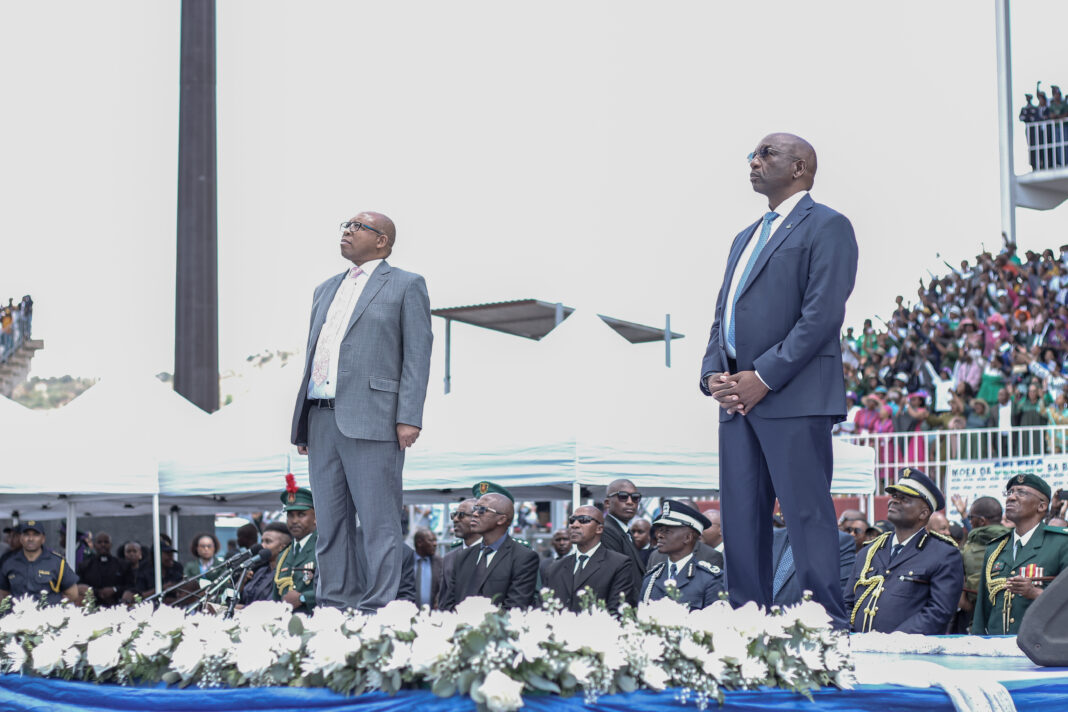Kananelo Boloetse
In October 2022, Lesotho witnessed a historic moment as Ntsokoane Samuel Matekane, the leader of the newly formed Revolution for Prosperity (RFP), was inaugurated as Prime Minister.
The inauguration followed the National Assembly Elections which were held on October 7, 2022.
Matekane’s party’s remarkable performance at the polls signified a desire for change and a departure from the era of unstable coalition politics that had plagued the county.
His inaugural address at the Setsoto Stadium in Maseru was not just a ceremonial occasion; it was a solemn pact, a social contract with the people.
In his address, Matekane outlined an ambitious vision for Lesotho’s future, pledging to revitalise the country’s economy after years of political instability.
He spoke of tapping into the economic potential, improving the macroeconomic position, and providing access to quality services for all citizens.
These promises, while inspiring, must now transition from words to action.
One of the pivotal commitments made by the prime minister was the transformation of Lesotho’s growth model. Shifting from a public sector-driven approach to one led by a competitive private sector is a bold vision. It holds the potential to unlock new economic opportunities, attract investments, and foster sustainable growth.
However, this transition necessitates concrete policies, regulatory reforms, and targeted investments to create an environment conducive to private sector development.
The call for national reforms is another critical aspect of Matekane’s vision. Acknowledging the profound nature of these reforms, he emphasised their pivotal role in realising Lesotho’s new growth model.
The implementation of these reforms is not only a promise to the people but a strategic imperative for the nation’s progress. It requires meticulous planning, transparent execution, and an unwavering commitment to the ideals of good governance and accountability.
As Prime Minister Matekane approaches the one-year mark of his tenure, the call for accountability becomes increasingly urgent. The promises made in the inaugural address must not remain mere rhetoric; they must materialise into tangible actions that positively impact the lives of the citizens. This is a responsibility that cannot be taken lightly.
The first 365 days of any administration are crucial, setting the tone for the remainder of its tenure. It is during this period that the government’s commitment to its promises is put to the test. Strengthening human capital, building essential infrastructure, and enhancing governance and accountability systems are not just aspirational goals; they are concrete steps towards achieving the vision outlined by Prime Minister Matekane.
The time for honeyed words and empty promises is over.
The citizens have entrusted their hopes and aspirations to their leaders, and they deserve nothing less than determined action and demonstrable progress. Prime Minister Matekane’s promises carry the weight of expectation, and now it is time to turn them into a reality that positively impacts the lives of all citizens.
The journey from rhetoric to action is the litmus test of leadership. Prime Minister Matekane’s vision for Lesotho is commendable, but it must be accompanied by resolute action and unwavering commitment.
As the first anniversary of Matekane’s administration approaches, let it not mark just the passage of time, but the realisation of promises and the beginning of a transformative journey towards a prosperous and inclusive Lesotho. The time for action is now.
Summary
- The implementation of these reforms is not only a promise to the people but a strategic imperative for the nation’s progress.
- Prime Minister Matekane’s promises carry the weight of expectation, and now it is time to turn them into a reality that positively impacts the lives of all citizens.
- As the first anniversary of Matekane’s administration approaches, let it not mark just the passage of time, but the realisation of promises and the beginning of a transformative journey towards a prosperous and inclusive Lesotho.

Your Trusted Source for News and Insights in Lesotho!
At Newsday Media, we are passionate about delivering accurate, timely, and engaging news and multimedia content to our diverse audience. Founded with the vision of revolutionizing the media landscape in Lesotho, we have grown into a leading hybrid media company that blends traditional journalism with innovative digital platforms.









